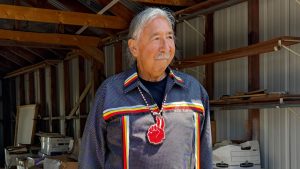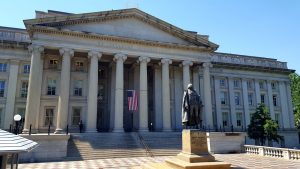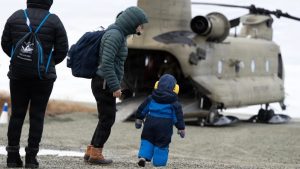
Leonard Peltier calls on Native Americans to come together in the ongoing fight for many of the same issues he championed in the early days of the American Indian Movement. After President Joe Biden commuted his life sentence in the deaths of two FBI agents, Peltier emerged from nearly a half century in federal prison to a hero’s welcome by his supporters and dismay by federal law enforcement officials and other detractors. In many respects, he picks up where he left off, speaking up for equitable treatment for Native people and defiance against a system he says is stacked against them. We’ll hear from Peltier about his life now beyond a prison cell and also discuss the coordinated effort that finally secured his release. (This show is pre-recorded so we won’t be able to take calls live on the air)
GUESTS
Leonard Peltier (Turtle Mountain Band of Chippewa, Lakota, and Dakota)
Holly Cook Macarro (Red Lake Nation), political strategist
Break 1 Music: American Indian Movement Song (song) Blackfire (artist) [Silence] is a Weapon [Double disc] (album)
Break 2 Music: Thunderbird (song) Blue Moon Marquee (artist) Scream, Holler, and Howl (album)


